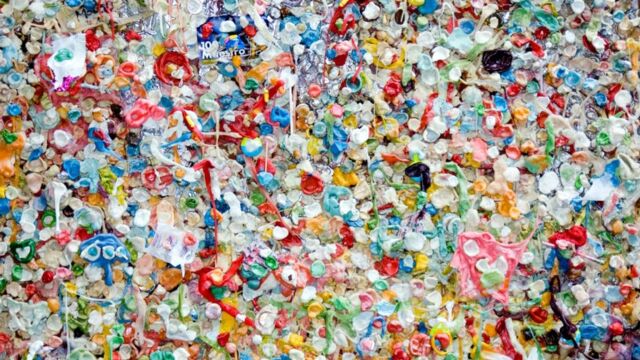Scientists have just made yet another terrible discovery about plastic pollution, and it will surprise you

Contrary to what that Norwegian pop group sang in the 90s, life in plastic isn't so fantastic after all. Scientists have just discovered another piece of bad news.
Lightweight and practical, plastic is nonetheless THE scourge of our age. And while some living organisms seemed until now to be spared its dramatic impact, experts have now unfortunately realized that this is not the case. Here are some explanations.
Discover our latest podcast
Insects are also affected
It's one of the evils of our century: plastic. According to numerous studies, while human beings don't actually ingest the equivalent of a credit card a week, as we've often heard, we do consume a lot of it, in the form of microplastic. We're also reminded of the images of turtles dying with plastic straws stuck in their noses. Seas, forests, beaches, this material has invaded the planet, from the most populated areas to the most remote. In the face of this terrible reality, there was a small glimmer of hope: insects seemed to be spared.
More under this adMore under this adBut that was before a research paper appeared in the scientific journal Ecological Entomology showing the opposite. For the first time, scientists have tangible proof that insects are also hit. The study's authors, Armand Raussel-Moreno of Madrid's National Museum of Natural Sciences, J. Manuel Vidal-Cordero and Alvaro Luna, both specialists in the study of the impact of plastic in nature, were able to observe Lasius grandis ants, endemic to Mediterranean regions, suffering from its effects.
Read more:Cockroaches have genetically mutated to survive humans: This trap no longer works on the insect
Life in plastic, not fantastic
The researchers studied 113 ants of the species. They came from 40 different sites on the island of La Palma, in the Canary Islands. 3 of them had their limbs compressed by plastic debris (abdomen and legs), posing a definite threat to their life expectancy. While the 3 scientists agree that this is certainly not a new occurrence, it is the first time it has been clearly observed. Alvaro Luna declared:
More under this adMore under this adTo be honest, I don't think we or anyone else yet have a true estimate of the scale of this problem, and whether it's something widespread, serious or not.
The problem with plastic is that it takes a long, long time to degrade. Around 400 years. By comparison, aluminum takes between 50 and 200 years. The other problem with plastic is that, as it degrades, it disintegrates into tiny pieces. Some are smaller than confetti. As a result, they end up being ingested by animals, polluting the entire food chain with their petrochemical molecules. While for the moment the experts don't know exactly what impact plastic pollution will have on insects, one thing is certain: it's obviously not good news.
More under this adMore under this adThis Lasius grandis ant, tangled in a thin, red fiber, may be one of the first examples of insects becoming tangled in plastic pollution. https://t.co/KKkzfBAc1w
— Science News (@ScienceNews) October 14, 2023
Read more:Here's how to prevent mosquitoes from getting inside your home during summer
This article has been translated from Gentside FR.
Sources used:
ScienceDirect: Ingested microplastics: Do humans eat one credit card per week?
Royal Entomological Society: Plastics and insects: Records of ants entangled in synthetic fibres
WWF: THE LIFECYCLE OF PLASTICS